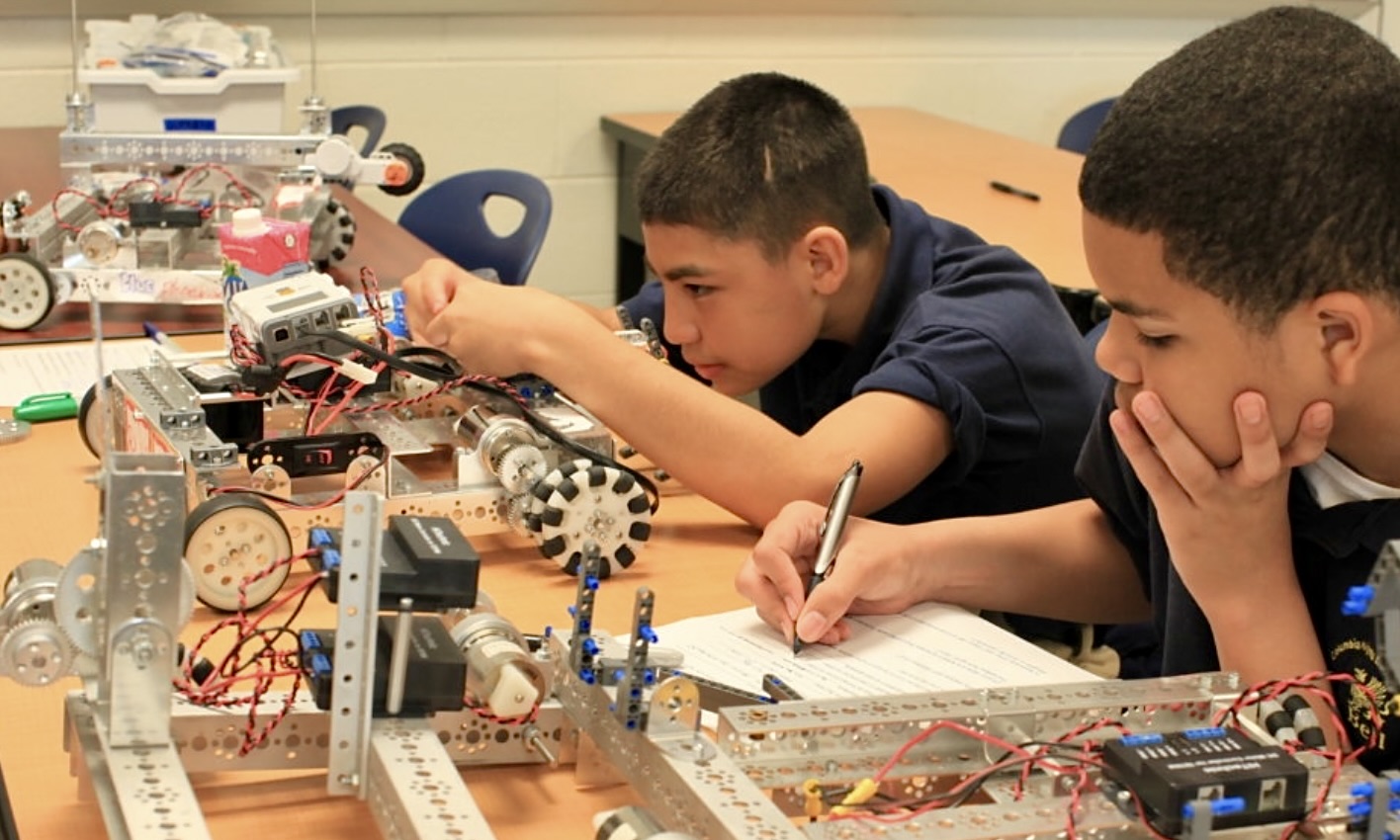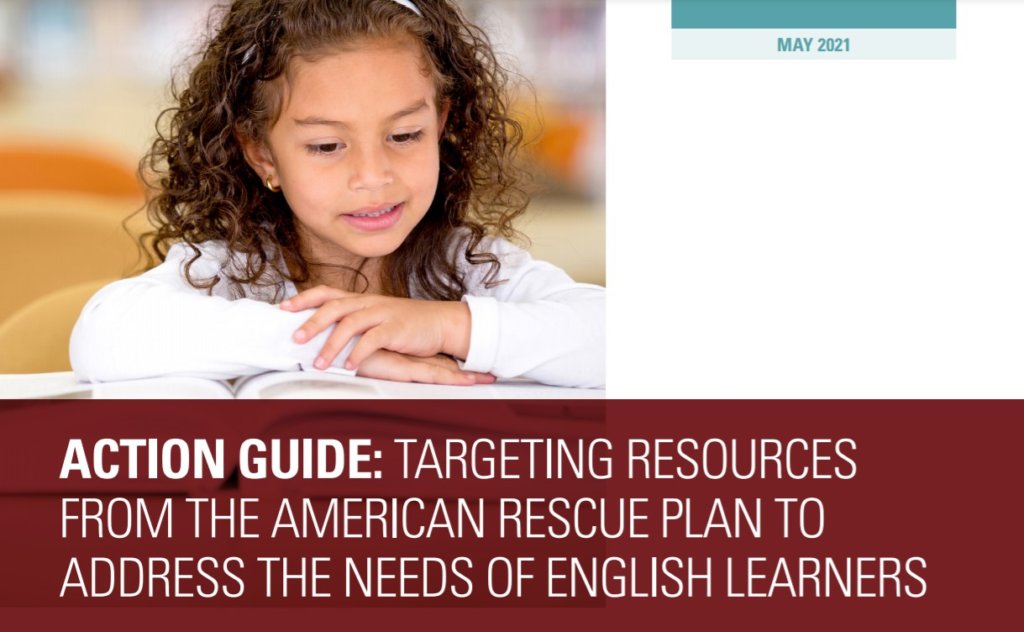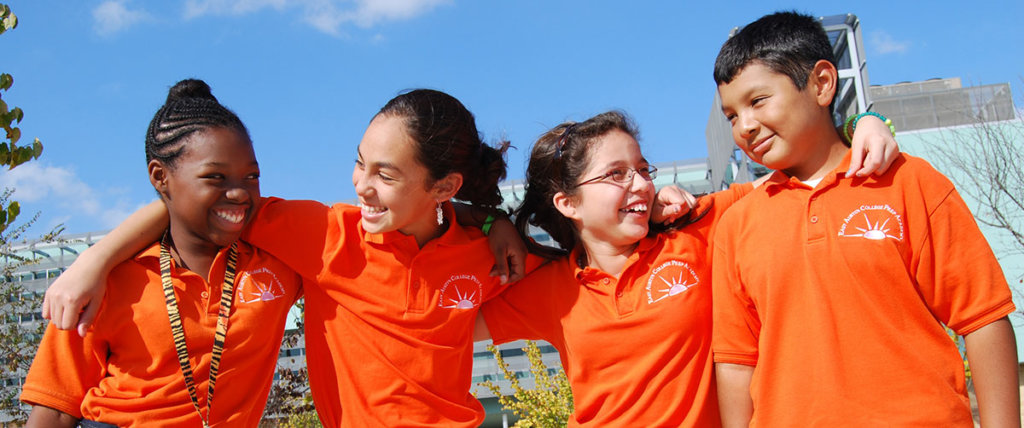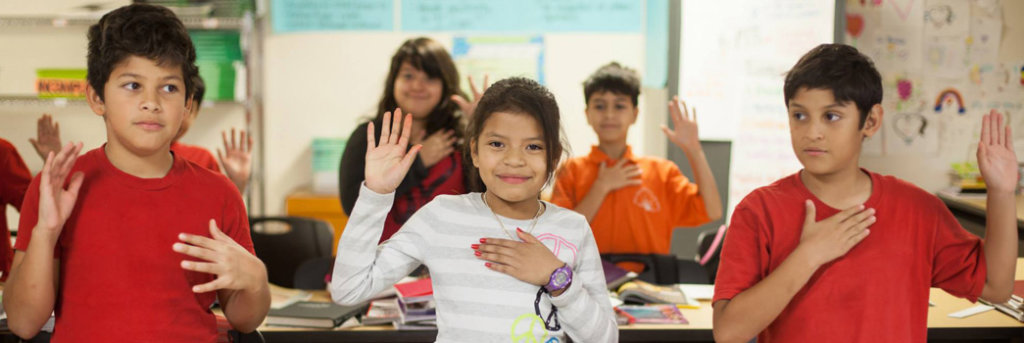Latino Students Have Cultural and Linguistic Superpowers the U.S. Government Knows It Needs for a Competitive Global Economy
Three years after the onset of a pandemic that caused severe learning delays for school children across the United States, the Biden-Harris Administration is focusing its efforts on making up for lost time. At the same time, it warns of a future in which this nation, a historic world political superpower and leader in education, will lose its competitive edge unless it does more to improve educational access for youth in early childhood, through college, and beyond.
That, along with calls for greater support for multilingual learning, are all messages UnidosUS is backing as it rolls out its own robust education policy agenda for Latinos, the nation’s fastest growing ethnic group and one which now represents 28% of the overall U.S. school population.
“Restoring the dignity of work also means making education an affordable ticket to the middle class. When we made 12 years of public education universal in the last century, it made us the best-educated, best-prepared nation in the world,” President Joe Biden said in his February 7 State of the Union Address. “If you want America to have the best-educated workforce, let’s finish the job by providing access to preschool for 3- and 4-year-olds. Studies show that children who go to preschool are nearly 50% more likely to finish high school and go on to earn a two- to four-year degree, no matter their background. Let’s give public school teachers a raise.”
Biden also noted that lowering student debt and giving more working- and middle-class families access to Pell grants–issues that UnidosUS champions–could help provide that competitive edge.
Biden’s statements echoed earlier remarks this year by U.S. Secretary of Education Miguel Cardona, who noted in a nationwide education tour in January that the United States must prepare students for greater global competition. His tour, titled “Raise the Bar. Lead the World” was meant to be a bipartisan effort—one that could further pandemic-era legislation such as the American Rescue Plan (ARP), which provided states with $130 billion to reopen schools and offer resources for closing achievement gaps that began years before the pandemic gave them greater exposure. That law was followed by the Bipartisan Safer Communities Act, which then funded the Department of Education’s Stronger Connections Grant to give schools some $1 billion in mental health resources.
“But we can’t rest there. We must do more. We need to raise the bar,” Cardona said in a January 24th speech to kick off his tour. “As much as it is about recovery, it’s also about setting higher standards for academic success in reading and mathematics. It’s unacceptable that in the most recent PISA test, an assessment which is done internationally, our students scored 36th place out of 79 countries in math.”
But he went on to say that testing was only part of the formula, noting that standardized tests should be a flashlight, not a hammer, and adding that a well-rounded education should also include access to the arts and wraparound support for mental health. He highlighted the $2.6 billion the Biden-Harris Administration is putting into teacher training and retention and noted that improving teacher salaries is key to ensuring all aspects of the government’s public education agenda reach the students it seeks to serve.
“Teachers help children to discover their own gifts, and, in some cases, when they lack confidence or struggle to learn,” he noted.
And finally, Cardona closed with the same warning Biden would later place at the top of his remarks on education during his 2023 State of the Union address.
“And speaking of global competitiveness, if we are to prepare our students for a global market, let’s raise the bar to provide better opportunities for our students in America to be multilingual,” Cardona said. He added that he had recently attended an education policy meeting hosted in France with policymakers from 38 countries and was surprised to learn that the United States was one of few that was primarily monolingual.
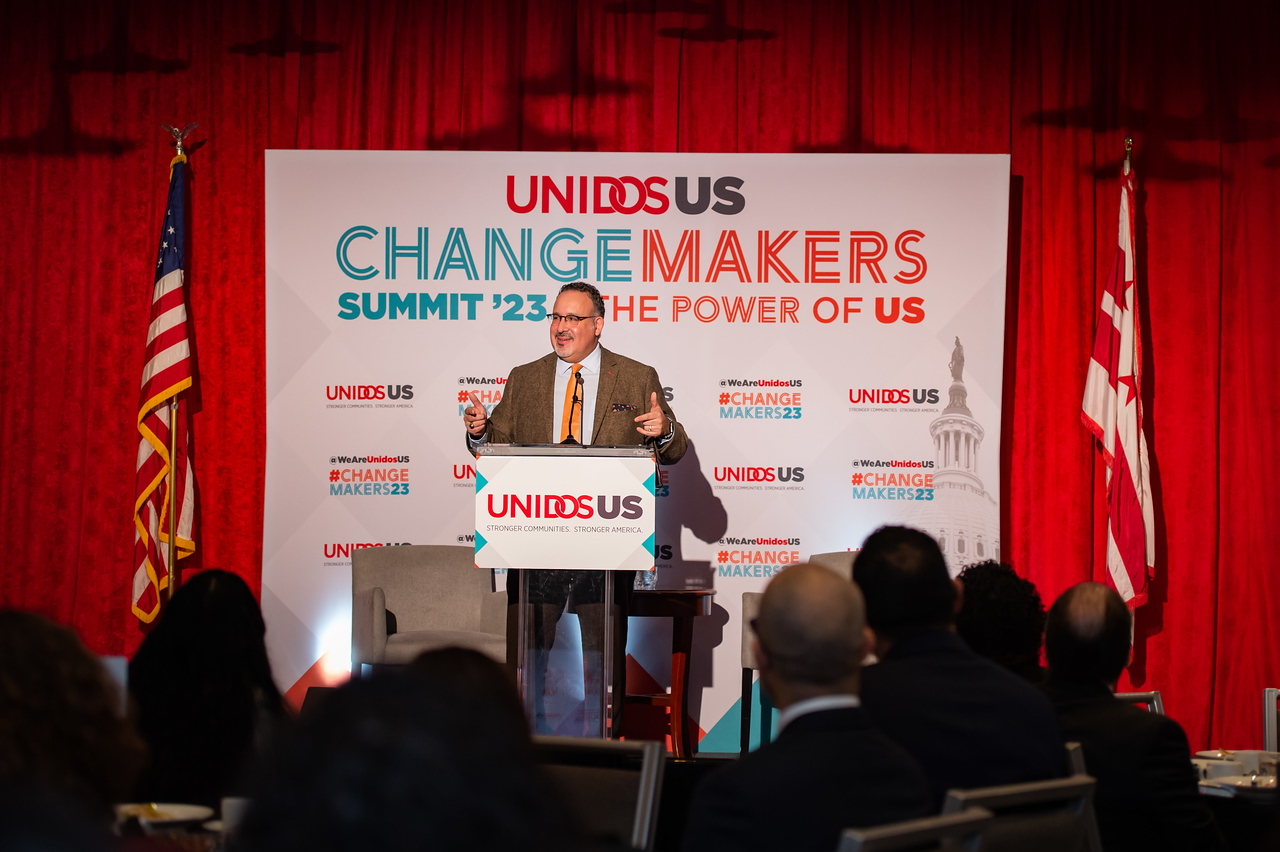
“Let’s look at our students in bilingual programs as gifted with assets that we want other students to have. Being bilingual and bicultural is a superpower!”
Cardona stated that concept again in February during remarks at the UnidosUS Changemakers Summit, prompting the audience, including UnidosUS’s own education policy staff, to break into cheers.
“Feeling extra proud as @SecCardona stands at our #Changemakers23 stage speaking Spanglish, talking about how being bicultural and bilingual is our superpower! @WeAreUnidosUS,” tweeted Roxanne Garza, senior policy advisor for the UnidosUS Education Policy Project.


